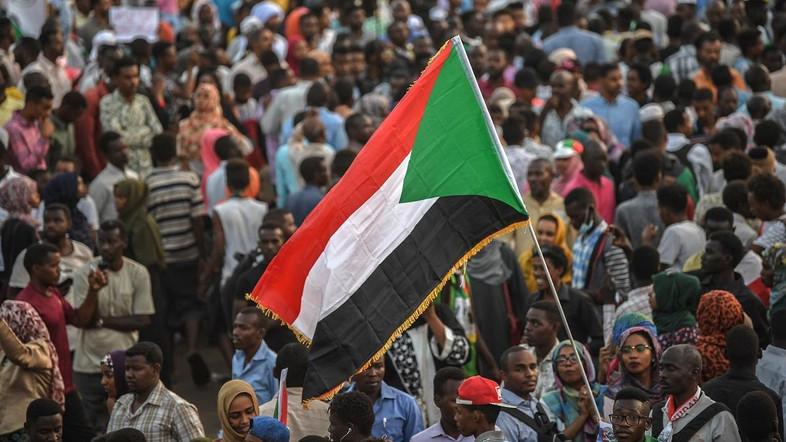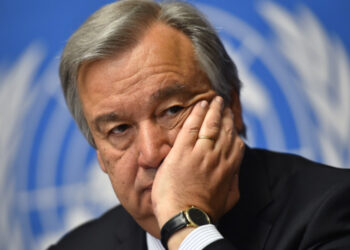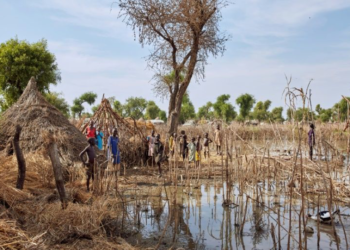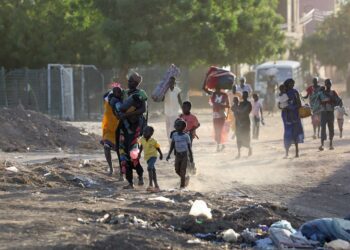As tens of thousands of pro-democracy protestors took to the streets of Sudan on Sunday to urge military leaders to hand over power to a civilian-led government, the Rapid Support Forces fired live ammunition at them in an attempt to provoke a violent clash, Mohammed Khader, a member of the United Nations Major Group for Children and Youth, told The Globe Post on Tuesday.
During the protests, at least seven people are reported to have been killed, with three of them being military personnel. Additionally, 181 people were reportedly injured with 27 of those being from gunshot wounds according to the state-run media, SUNA.
This comes less than one month after at least 128 protestors were killed and hundreds more injured outside the TMC’s headquarters in Khartoum by the Rapid Support Forces, also known as the Janjaweed, on June 3.
A spokesperson for the RSF said that three of their men were also wounded on Sunday by gunshots, which they are attributing to protestors, according to SUNA. The spokesperson claimed that demonstrators had started throwing rocks at the RSF which forced them to use tear gas to which demonstrators reacted violently, and led to armed forced having to fire at the protestors.
However, speaking with The Globe Post, Khader said the RSF fired live ammunition at peaceful protestors in a failed attempt to provoke them.
“The violence is primarily, and if not entirely, all on Hemedti [RSF leader] and the RSF/ Janjaweed, who are doing everything they can to stop peaceful protest and provoke violence,” he claimed. “The Sudanese people remain vigilant and hopeful, despite targeted threats.”
For 30 years Sudan had been governed by Omar al-Bashir, an autocratic ruler who led the country to economic strife. In April, protestors succeeded in ousting al-Bashir, and the TMC assumed control of the government to oversee the transition of power. However, activists wanted a civilian government in charge, so they held peaceful sit-ins outside the TMC’s headquarters to press its leaders to hand over power to civilian leadership. Protest leaders and the TMC were negotiating a compromise when talks broke down at the end of May, which led to the violence on June 3.
There was fear among the Sudanese and the international community that Sunday’s protests would also turn deadly with the United States State Department urging the TMC and RSF to remain peaceful.
Saudi Arabia, UAE Want a Dictator to Remain in Power in Sudan, Expert Says
Next Steps For Sudan
At the beginning of June, Ethiopia and the African Union put forward a proposal for a new government that would allocate seven seats to civilian leaders, seven to the Military Council and one seat would be for an impartial individual, along with a cabinet of 18 ministers. Over the past month, the TMC has gone back and forth over whether they would agree to the proposal, but last week agreed that they would accept the proposal as a starting point for negotiations.
“A number of points have emerged around it, but in general it is a suitable proposal for negotiations to reach a final agreement leading to the establishment of the institutions of a transitional rule,” a council spokesman said.
But amid the back and forth between the two groups, Khader said that the pro-democracy leaders have lost trust in the TMC because the military group is trying hard to preserve the remnants of the deposed regime.
If the two groups cannot come to an agreement soon Khader said that the Sudanese people will continue to take to the streets to fight back against the military regime despite the threat of violence.
“Protesters acknowledge that revolution is not a stroll in the park and ready to pay the price of change. This is clear from their heroic sacrifices and resilience demonstrated all through the stages of the long bloody strife,” he said.
The Sudanese military has also tried to stifle their opposition by plunging Sudan into a nationwide internet blackout since June 10. This has impacted how organizes spread the word of protests and how news of the protests reaches the international community. Currently, the only way for videos or information from inside Sudan to get out is through advanced hacking to gain access to the internet. Sudanese protestors then send whatever limited videos and pictures they can to Sudanese diaspora around the world for them to share on social media, said Sudanese activists to The Globe Post.
“Despite the lack of communication between areas of Sudan, people remain united in a common narrative to a democratic transition towards a civilian-led government reflective of the values and aspirations of the Sudanese people,” Khader said.
The protests on Sunday in Khartoum weren’t the only demonstrations, around the world thousands of people gathered to show their support for Sudan. Activists in Washington, DC took to the streets and marched from Capitol Hill to the White House, while throughout England protests were held in cities in solidarity with those on the front lines in Sudan.
“Externally, the world has rallied its support for Sudan, as people from around the world came together to stand with the people of Sudan on June 30th,” said Khader.
https://twitter.com/MohammedBasama/status/1145310760685514752





















